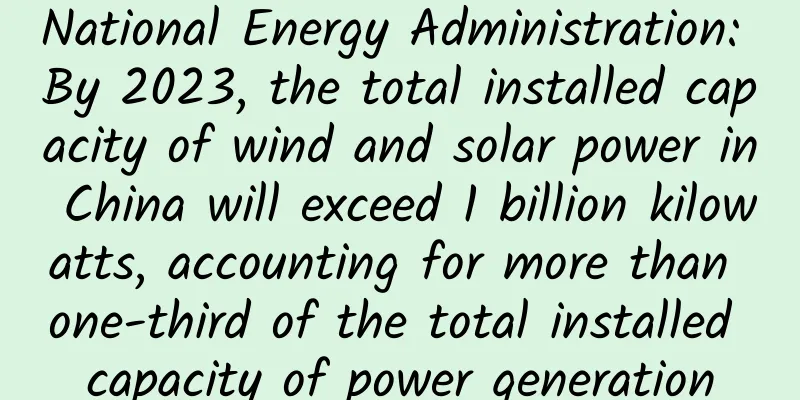Seven questions to clarify the whole story of "WeChat charging"

|
Wang Yunhui, Technology Studio, China Business Weekly Plot summary: Who should be charged? This key question is confused What is China Mobile’s real intention? After users have paid for data traffic, why do operators charge them again? China Mobile dug a hole and ended up digging its own grave? If Tencent is "charged", will users also be "charged"? Tencent poses a dilemma for regulators How will the situation evolve if the government does not take action?
First of all, I must say that this article is as unbiased as possible and analyzes the issue from an absolutely neutral perspective, rejecting all kinds of criticism. If we put aside the debate and look for the root cause of the recent uproar over WeChat charging incident, perhaps it is because the parties involved have intentionally or unintentionally confused the cause and effect of the matter that the matter has become more and more serious in the dislocation and chaos. ***, Who should be charged? This key question is confused The issue of WeChat charging has escalated from an issue for discussion within the industry to a hot public event in the past week. The most crucial reason is that several government and operator leaders, as well as Tencent Chairman Ma Huateng, have publicly expressed their views on WeChat’s contradictions. Their opinions are different, but they all mentioned a sensitive word: “charging.” The most important issue is not the fees, but who to charge. However, this issue has been strangely confused. At the beginning, when talking about this issue, the information revealed by Miao Wei, Minister of Industry and Information Technology, was that "operators hope to charge WeChat", but on the Internet later, this statement was widely interpreted as "operators are requesting that WeChat adopt a paid model in the future." What’s interesting is that within a few days of this news being widely circulated, new media such as Weibo and WeChat were flooded with messages saying “You will have to pay $25 to open WeChat after 6pm tomorrow” and demanding “Repost if you see it, stop these deceptive companies from making money, and protect the legitimate rights and interests of consumers!” This is obviously something that will anger the public, not to mention that WeChat has more than 300 million users! Unsurprisingly, there was a lot of criticism and the operators were humiliated. But the truth is that the relevant parties had previously argued only about whether the operators should charge Tencent, and did not involve users at all. This is because everyone knows that in China's current Internet environment, no one would be stupid enough to charge all users directly, just like Tencent QQ, which has not charged directly for so many years and is still profitable. As long as there are users, there are many ways to make money. Not to mention being stupid enough to force Tencent to charge users. But in any case, when the rights and interests of 300 million users were dragged into this vortex, the nature of the entire incident has changed. Second, what is China Mobile’s real intention? China Mobile itself said that the network is becoming increasingly congested. Okay, we can ignore this ridiculous statement and talk about it later. Some people say that this is an attempt by operators to curb Tencent's development by charging fees. This statement is actually bullshit. Given Tencent's current size, revenue structure, industry chain layout, and bank-lending relationships, it would be impossible for the Penguin Empire to suffer serious damage if the fee scale was not astronomical. The pit of traffic fees is too small to trip up the elephant's feet. Some people say that this is a deceptive company that wants to make more money by deceiving people. This statement is obviously too emotional. Every business wants to make money, but if operators just want to make money, there are many ways to do it, and they don't have to fight to the death. To answer this question, we must first figure out what the operators will spend the money on if they collect it. The answer is to fill the hole. To fill the revenue hole and cost hole brought by WeChat to operators, especially the cost hole. The issue of revenue is important. The threat posed by OTT vendors to operators is unstoppable, and operators are also preparing to respond, but this is not urgent. When it comes to the issue of cost, there is a key issue involved: inter-network settlement. In 2010, I wrote a sentence in a report, "Since the popularization of the Internet in China, most of the grievances, ups and downs and contradictions in the access market are related to inter-network settlement. The number of disputes, the intensity of contradictions and the number of people discussing this core proposition far exceed other industry issues." This issue is also an important sticking point in the WeChat incident. As mentioned in the previous story, China's inter-network settlement system means that no matter how users behave, as long as traffic is generated between different operators, China Mobile will settle the fees with China Unicom or China Telecom. This system was originally intended to use the high profits of mobile services to subsidize fixed network infrastructure. Later, the settlement price has been adjusted many times, but the major subsidy policy has remained unchanged. The traffic generated by WeChat's 300 million users not only creates a burden for China Mobile, but also because more than 90% of China's servers and backbone networks are controlled by China Unicom and China Telecom, China Mobile has to pay again for WeChat's free service. This is a big pit, and it is getting bigger as WeChat's user base grows. Therefore, a more reliable way is to charge Tencent and use the money to fill this hole. This is also the most reasonable logic for operators to charge fees. This is also why China Mobile is the most anxious about this matter, while the other two operators are much more relaxed. Third, after users have paid for the data traffic, why do operators charge “double fees”? Well, this is a question I hear the most recently. But this question itself is also problematic. As mentioned earlier, the focus of the dispute between operators and WeChat is not whether users should pay Tencent, but whether Tencent should pay the operators. If it is the former, it is a huge social problem, and because the operator has already charged users for data traffic, it is unreasonable to charge them again. But if it is the latter, it is purely a business issue between enterprises and has no direct relationship with users. The most important thing is that there is a reason why the operator charges Tencent. The core logic is that in the past, only operators could provide users with calling and text messaging services, and users could only pay through operators to purchase mobile Internet applications. Therefore, operators controlled the customers' payment channels, so in addition to traffic fees, operators could get a certain percentage of business revenue from mobile Internet companies. This means that on the roads built by the operator, there is only one car company of its own to attract passengers, so the overall income can be balanced through cross-subsidy. In order to promote the development of mobile Internet, the traffic fees charged to users are actually relatively low, because operators can make up for it in voice services, SMS services, and partner sharing. As with newspapers and magazines, the retail price is often cheaper than the printing cost because it can be subsidized by advertising. But now, unlike other Internet products, instant messaging services such as WeChat are no longer a supplement to operators' businesses, but will gradually replace MMS, WeChat, and even telephone calls in the future, until they become the "gravedigger" of operators' traditional businesses. In the past, when operators set prices for voice services, SMS services, etc., they included their own network construction costs, license costs, frequency costs (this cost is mainly for foreign operators), operating costs, etc. But now, since WeChat does not have to bear the huge costs of network, licenses, frequency, etc., it can develop users in a cheaper "pseudo-free" way, which will be a fatal blow to operators. At the same time, the development of online banking and third-party payment has also made mobile Internet companies no longer strangled by operators. For example, if a mobile QQ user wants to buy Q coins, he can pay directly with Tenpay without having to pay China Mobile for the settlement share. This means that the operators’ original sources of “cross-subsidy” have been hollowed out. Then no subsidies. China Mobile has no stake in Tencent anyway. But now there is a problem. WeChat's 300 million users generate a huge amount of traffic. If there is no subsidy and the operators only charge users for traffic, they will not make money. China Unicom and China Telecom are better off relying on China Mobile's inter-network settlement, but China Mobile may even lose more and more money. So, the operators were dumbfounded. Therefore, the real understanding of the "traffic fee" that China Mobile charges Tencent should be the gap between the traffic fee paid by users and the operator's cost. In theory, this makes sense as long as the cost is within a reasonable range. After all, WeChat uses the operator's network and resources, and it is not the operator's own company, so the operator has no obligation to provide subsidies for it. Fourth, China Mobile dug a hole and ended up digging its own grave? The problem is that China Mobile did not directly tell Tencent that it had lost money and needed them to make up for it. Instead, it tried to cover up the situation and made excuses, which ultimately ended up hurting itself. As we all know, China Mobile said that the "signaling storm" brought by WeChat is making China's mobile network more and more congested, and there is even the possibility of network collapse. This is the truth. In fact, the severity of this problem may be even more serious than China Mobile said. This question is too technical to be elaborated here. There are already many reports that provide detailed explanations, and you can find out the details by searching on the Internet. But the question is, what does this have to do with charging Tencent? Obviously it doesn’t matter. Even if the operators charge Tencent, it cannot stop users from continuing to use WeChat, and the “signaling storm” will still exist. This logical error is an important reason why many people question China Mobile. Some friends in the operator's internal understanding is that it may be a habit in the past that makes China Mobile believe that highlighting the risk issues of the network is more likely to attract the attention and concern of the government and the public, and thus gain more support. But the problem it ignores is that when this method is attached to a commercial purpose, it will be seen by the outside world as "labeling" Tencent, which has the opposite effect to the expectation. Inertial thinking is deadly. Fifth, if Tencent is “charged”, will users also be “charged”? Everyone has different opinions on this issue. From an economic point of view, when the cost of a company increases, it will inevitably pass it on to users to ensure that its own interests are not damaged. So from the perspective of total volume, if Tencent is charged, it will either reduce its own profit margin or increase the fees charged to users. This is an unavoidable logic. However, the vast majority of WeChat users are unlikely to feel this change. China's current harsh Internet competition environment means that for a long time we will inevitably be in a situation where the "pseudo-free model" is rampant. The so-called "pseudo-free model" is to provide users with free basic services while selling various value-added service packages, using user resources as commodities and making money in other links, such as advertising and traffic inflow. This was the case with Tencent in the QQ era, and WeChat will be no exception in the future. To tell you a half-true and half-false joke, don't worry about any other reasons, and don't look at any domestic or foreign cases. As long as there is a Zhou Hongyi watching closely, how could Ma Huateng dare to propose charging fees? Sixth, Tencent poses a dilemma for regulators How did Tencent respond to this incident? China Mobile made a wrong move, which allowed Tencent to gain public support from 300 million users, but this is not a fundamental solution. Because as long as Tencent's servers are still in the operator's computer room and using the operator's network, it can never truly survive without the operator. Even if it becomes a powerful shark, it still cannot leave the basic network. Therefore, at this year's Two Sessions, Ma Huateng proposed open network construction. This is a move that hits the bottom line, but it also poses a problem for regulators. If network construction is opened up, the entire country's information and communication industry structure may be impacted, and areas such as national defense and security will face greater risks. However, if it is not opened up, mobile Internet companies can legitimately bypass operators and destroy the operators' defenses inch by inch with a "free lunch". So, what should regulators do? Seventh, if the government does not take action, how will the situation evolve? Over the past many years, we have been accustomed to sitting on small stools, drinking tea and watching the quarrels among several large companies, waiting for the government to make the final decision. But one trend that can be seen is that the government is intervening less and less, at least in the fields of communications and the Internet. This is because the government has increasingly accurately grasped the boundaries of its own power: in addition to establishing key market order and punishing those who cross legal boundaries, the less the government intervenes in the market, the healthier the industry will be. So, what we see is that in the monopoly industry that is criticized by all netizens, the products provided to the public by the two oil companies, water, electricity, etc. are all increasing in price, only communications are decreasing in price year by year, and in the Internet industry, free is king and there has been no change. Regarding the WeChat incident, two sentences from Miao Wei, Minister of Industry and Information Technology, are worth pondering. In a word, the Ministry of Industry and Information Technology is "coordinating" all parties, rather than "studying how to deal with it" as we are already familiar with. Another saying is, "Market problems should be solved by the market." Obviously, the government is not prepared to "take action". In the final analysis, this is a business issue where one person wants money and the other does not give it. Both parties have their own reasons and grievances, and no one has crossed the legal and moral bottom line. In this case, you can discuss it among yourselves. I don't care. Thankfully, I can't think of a better way for the government to handle this. Of course, a question that arises is how the situation will evolve if the government does not take action? 1. It may be inevitable for Tencent to pay the operators, the only difference is how much. It is worth noting that the external public opinion trend that is now being amplified will also become a bargaining chip for both parties. 2. There is no such thing as a free cake. The commercialization of WeChat is an inevitable trend. Whether the operators charge or not, WeChat will be commercialized. The only difference is that under different cost conditions, its pricing plan may be slightly adjusted, that's all. 3. At least for a long time, WeChat's basic services will definitely remain free for users. Ma Huateng will not be stupid enough to charge, and operators will not be stupid enough to force Ma Huateng to charge. Those who clamor that "the free era will end" either don't understand or are malicious. As for other changes, most of them are no longer relevant to the overall situation. The only important suspense lies in how much impetus this incident will bring to policy. For example, inter-network settlement has become a long-standing problem. For example, the intensity of the reform to allow private capital to enter the telecommunications sector will be an important task for the Ministry of Industry and Information Technology this year, but its depth and breadth still need time to observe. In the near future, the most likely place for new developments to emerge may be in Boao. On April 7, at the roundtable meeting of "Mobile Internet: Cold Thinking on Hot Topics" at the 2013 Boao Forum for Asia, former China Mobile Chairman Wang Jianzhou and Tencent President Liu Chiping will also discuss this issue. |
Recommend
WeChat Mini Program permission settings, how to manage mini program member permissions?
If you are developing a mini program by yourself,...
It's raining "microplastics" from the sky...|Environmental Trumpet
Hello everyone, this is the 2nd issue of the Envi...
The cute character is actually a master, a hero and a traitor?
In the popular Japanese science comic "Cells...
The support behind the safety and reliability of new energy vehicles
Despite the decline in subsidies, the investment ...
World Water Day丨How to love and protect water?
How much water should a person drink a day? Today...
China Automobile Dealers Association: The auto dealer inventory warning index was 60.5% in November 2020
On November 30, 2020, the latest issue of the &qu...
How much does it cost to customize the Zhaotong digital mini program? Zhaotong Digital Mini Program Customized Price Inquiry
Zhaotong Digital Mini Program Customization Price...
The actual progress report of "operating core users" has successfully completed the first step!
Every product operates core users, but also encou...
Shouguang SEO training: SEO optimization ranking can't go up? Do you understand these contents?
How to improve website SEO to improve the ranking...
[2017 latest edition] A complete list of professional terms in the mobile Internet industry!
Based on the feedback from previous students on Q...
The closure of domestic online storage has made users worry about where the next outlet will be.
【51CTO.com original article】Since last year, rele...
In November, user behavior returned from ASO keywords to the list, You Get?
Under the myth that ASO keyword search ranking is...
AI plays games better than humans? But what's the point of letting AI play games...
Welcome to Science Popularization China’s special...
What are the Android emulator detection methods?
The general method of detecting the Android emula...
Google has made two mistakes over the years
Google does so many great things that it can be h...









